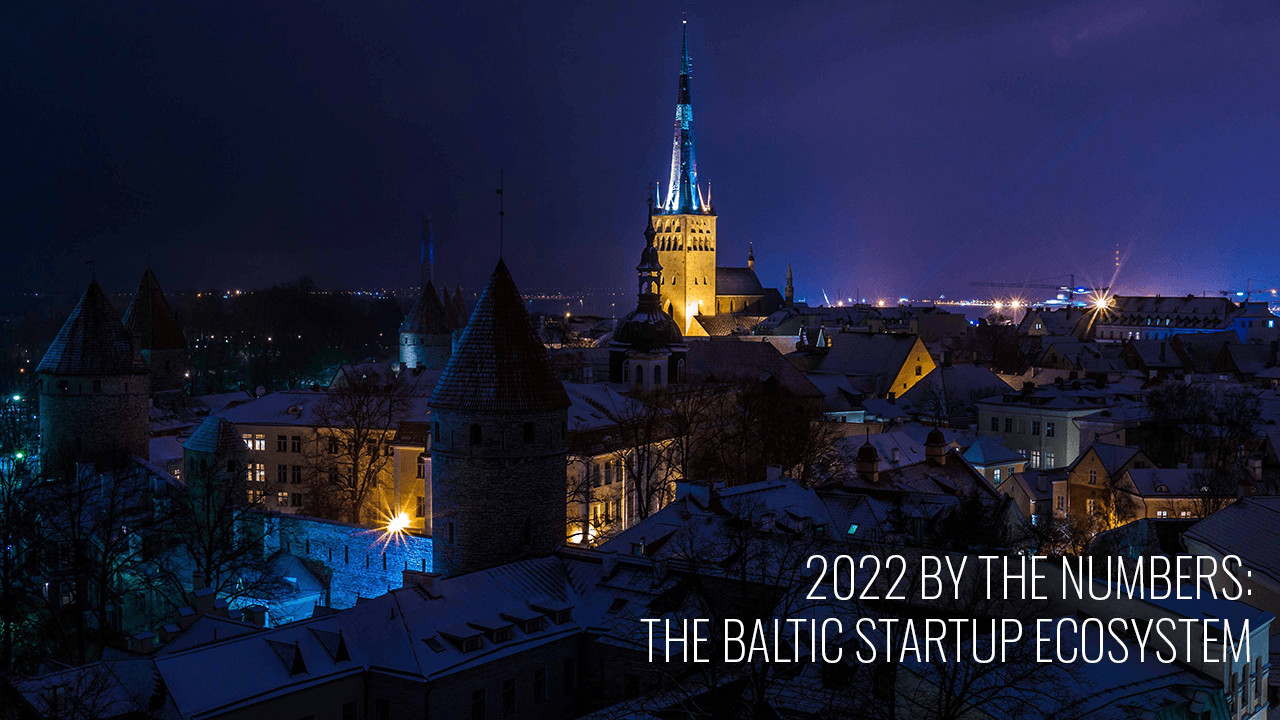It should come as no surprise that 2021 was a banner year for investments in Baltic startups. With records being broken across the board and in just about every ecosystem, it’s fair to say that 2021 shall henceforth be known as a Red Herring.
With data source after data source reporting that 2022 saw a cooling off of the blistering pace that was 2021, lower numbers are to be expected. And such is the case in the Baltic States. But not by much.
By The Numbers
According to the data our friends at Vilnius-based VC firm FIRSTPICK shared with Tech.eu, Lithuanian, Latvian, and Estonian startups attracted €1.603 billion in investment this year. When compared to a record 2021 that saw €1.894 billion flow into the region, the decrease is only €291 million, or 15%.
Looking at the number of deals, 2021 saw 190 transactions taking place in the Baltics, with 2022 clocking 124 deals registered up until 1 December of this year, a 35% decrease.
“it would be unfair to say that this year has been much worse for startups. However, some of the large investments in 2022 result from last year's work, and the total investment amount does not fully reflect the recessionary sentiment that has emerged this year,” commented FIRSTPICK’ managing partner Jonė Vaitulevičiūtė.
The Estonian Legacy
The cooling off of investors' appetites on a global scale has naturally affected the Baltic States with startup funding in the region decreasing every quarter and has returned to pre-pandemic levels.
However, regional champion Estonia continues to hold court, beating the trend with €1.295 billion invested this year, a figure up almost 26% from 2021’s €1.03 billion. To be fair, Tallinn-based Bolt’s €628 million Series F round at the beginning of the year greatly tipped the scales in the country’s favour.
Lithuania saw €241 million invested, a number down 49% from the €419 million invested in 2021.
Latvian startups attracted €67 million, down 73% from the €246 million raised in 2021.
Zooming out, this would see Estonia garnering the lion's share of Baltic region startup investments at 81%, Lithuania taking home 15%, and Latvia 4%.
With 70 deals on record, Estonian activity was more than double that of its neighbour Lithuania (31) and treble that of Latvia (23).
Foreigners Welcome
2022 saw a growing interest from foreign investors in Baltic startups, with non-native funds accounting for more than 90% of the value of all investments made in the region. With three deals each Prague-based Lighthouse Ventures, Finland’s Icebreaker.vc, and Superhero Capital were the most active investors in Baltic startups.
Growing Up
Once known predominantly as a pre-seed and seed stage investment haven, 2022 saw at least one Series A or later stage round taking place on a monthly basis in the Baltic region.
Highlights include Tallinn-based Kevin's €65 million Series A round led by Accel, Eurora’s €40 million round led by Amsterdam’s Connected Capital, and NFTPort’s €25 million Series A round co-led by Atomico and Taavet+Sten.
And while the unicorn factory has been taking some time off as of late, 2022 saw the red ropes pulled back for three Baltic startup ecosystem startups: Nord Security from Lithuania, Glia, and Veriff, both from Estonia.
"It is encouraging to see that last year, as many as six tier-1 funds invested in the Baltics — Accel, Burda Principal Investments, Tiger Global, Atomico, Target Global, and Index Ventures. To be noticed by the world's largest funds is a great achievement resulting from the efforts of the entire ecosystem," added Vaitulevičiūtė.
2023
According to FIRSTPICK, both startups and investors are starting to worry about the year ahead, but note that if both parties remain malleable and are willing to operate more efficiently, cooler heads will prevail.
"Baltic startups are special for several reasons that will help sustain growth. First of all, startups in our region are characterized by the efficient use of capital. And investment in such startups will continue. The new investment cycles of local funds should also provide a sense of security. Obviously, foreign funds will be more cautious, so only the best teams can expect their investments, mostly in the seed and later stages," concluded Vaitulevičiūtė.
Lead image: Dagnija Samsone


